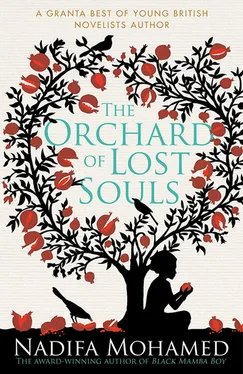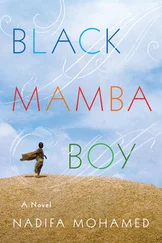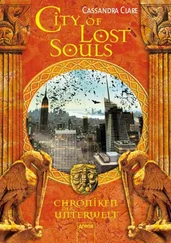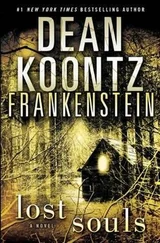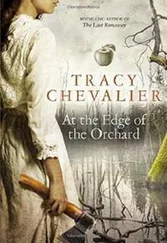So Deqo had grown up thinking herself a cuckoo amongst the other camp children, whose parents were all refugees from the fighting and famine that had engulfed eastern Ethiopia from the seventies into the eighties; some were Somali, some were Oromo, but they all had their families or even just their family names and clans to help them. Deqo deeply wishes she had a second and third name; she won’t be greedy and ask God for a whole abtiris of seventeen names or anything, just two more would allow her to puff out her chest and announce her existence to people. When she was too young to know better she had taken the name Deqo Red Cross because that was the name of the clinic she lived in, but the frowns on the white-uniformed nurses’ faces let her know it wouldn’t do as a replacement name. She lived as just Deqo, or sometimes Deqo-wareego when the nurses shouted at her, and waited for her prayers to be answered.
When Anab Hirsi Marfan came into the orphanage at around six years old, head shaved for lice and wild with grief, Deqo was charged with looking after her. When she ran away to the burial ground Deqo was in close pursuit, nervously waiting and watching while the little bat-eared girl beat her hands on the mound of earth covering her mother. The older graves were marked with rocks, planks of wood, or thorny acacia branches, but the newer ones were unadorned, rolling up the hill in a wave. The cemetery resembled the vegetable plot between the clinic and orphanage, pregnant with plantings that would never grow, watered with nothing but tears. Anab shovelled her hands into the dirt as if she was trying to dig up her mother or bury herself; eventually she tired, defeated, and laid her face down on top of the grave. Deqo had then approached and stretched out her hand; Anab took it, her fingers bleeding, and sloped back with her to the orphanage.
Deqo took ownership of Anab from that day, sleeping and eating beside her in the large tent that housed fifty-two orphans and strays. Every day she and Anab ate canjeero for breakfast, played beside the standpipe where the earth was damp and malleable, followed funeral processions to the cemetery, had an afternoon nap and then played shaax with mud counters before the unchanging supper of rice and beans and lights out. Lying in the dark, whispering and tittering, Anab called her Deqo-wareego Hirsi Marfan; they were new-found sisters, thrown together like leaves in a storm.
The myriad buildings that Deqo is slowly learning the names and purposes of appear in the edges of her vision as she steps into the pitted road. The library for keeping books to learn from, the museum for interesting objects from the past, the schools in which children are corralled and tamed, the hotels for wayfarers with money in their pockets — the existence of all these places brings pleasure, despite her belief that as a refugee she is not welcome inside.
In the weeks since her arrival in Hargeisa she has learnt something every day just from observing the life around her. In the first few days she slept in the market, led there by electric lights and children’s voices. She huddled rigidly under the stalls with a few girls and many, many boys fighting and sniffing all night from little bags that gave them leaky noses. She left there and found a concrete area in front of a warehouse that was swept clean and raised above the dust of the street. She found a little sleep there until one night a pack of stray, short-haired dogs found her, growling and barking as she hid her face in her hands. They drew the attention of the watchman who frightened them away and then banished her too. She had then stayed a week outside the police station, hoping for their protection against boys and strays, but instead there was the constant disruption of police cars, of foot patrols and military vehicles sweeping up and down the road. Eventually, she had gravitated closer and closer to the ditch, lured by its quiet thicket and isolation, to the point where she is now perfectly comfortable sleeping within its deep darkness, unafraid and undisturbed, unless it rains and a deep chill enters her bones.
Deqo reaches the ditch and turns off at the red-berried shrubs that mark the path towards her barrel, speeding down the slope and only staggering to a stop when it comes into view It is a mysterious sanctuary that swallows her up at night; she doesn’t know who brought it here and only found it herself by accident one moon-bright night. She scoops up the rainwater that had so tormented her the night before and quenches her thirst, the taste of kerosene faint at the back of her throat. Then she pours the rest over her head and torso, squeezing the excess from her thin smock. It will dry in the time it takes her to collect all the fruit she needs from the farms.
She hurries over to Murayo’s plot which lies near the right bank of the dry waterbed, far from the noise of the road, where a flock of birds roosts and chats, their nests like bad imitations of wicker baskets. They fly up and hoot at her approach as if to warn Murayo. It depends on how Murayo is feeling each day as to whether she will allow her to glean the fruit, but since Deqo alerted her to the burglar crouching on the roof of her mud-built home she has been generous. Deqo scans the ground for the squishy, over-ripe mangoes she can eat herself before bothering with the hard, green fruit still ripening on the branches. Today there is only one lying splattered in the weeds, its orange flesh trembling with black ants.
Up in the trees she checks the foliage for snakes. She once grabbed a sleeping green snake as she climbed, its mouth suddenly yawning, rigid and white in her face, making her fall clear out of the tree. She spits into her palms and hugs the slimmest trunk, above which are a clutch of mangoes that have a nice red blush to them ready for picking; her hands hold her up while her toes slip against the smooth trunk. Before she loses her grip she grasps the branch that holds the mangoes and plucks them off one by one, throwing them gently to the ground, then edges back towards the trunk and slides down, enjoying the sensation of the trunk against her skin. She collects the mangoes in her damp skirt and rushes away before Murayo comes to water her crops. The next plot is larger, dominated by dense banana trees, some so laden that the bananas hang near her head; she takes six, all that she can carry in her skirt, and turns back to town.
At the faqir market Deqo retrieves her piece of cardboard with the slice of advertising still visible on it from the pile on the ground and lays out her merchandise in two rows of six, alternating banana and mango. She has tried other jobs: collecting scraps of qat to sell on to the dealers, pulling grass to sell as goat feed to housewives, sweeping the main market when there aren’t enough girls in the evening, but this is her favourite. Her workday is over early and she has no boss to tell her what to do, and on the days that there are no customers she can eat the pilfered fruit herself.
Most of the other sellers are middle-aged women, with hefty arms and feet overflowing the edges of their sandals. The only one of them who is always kind to her, Qamar, is not there today so Deqo sits on her haunches and waits for customers. They come slowly, browsing the other stalls before deciding they can get the cheapest price out of her. She watches how the other sellers haggle and imitates their impatient gestures and harsh words. ‘Take your shadow off of me if you’re not interested,’ she shouts. ‘You are blocking people with more than lint in their pockets.’ She says this with a straight face despite her tiny ramshackle body and the twigs in her hair.
The bananas go first to a woman carrying a toddler on her back, and then the mangoes disappear in ones and twos. She holds the money in her hand with satisfaction; there are no dramas today no thieves encroach and no arguments take place. She hates those days when honking, clumsy women stampede through her patch in pursuit of someone or other.
Читать дальше
